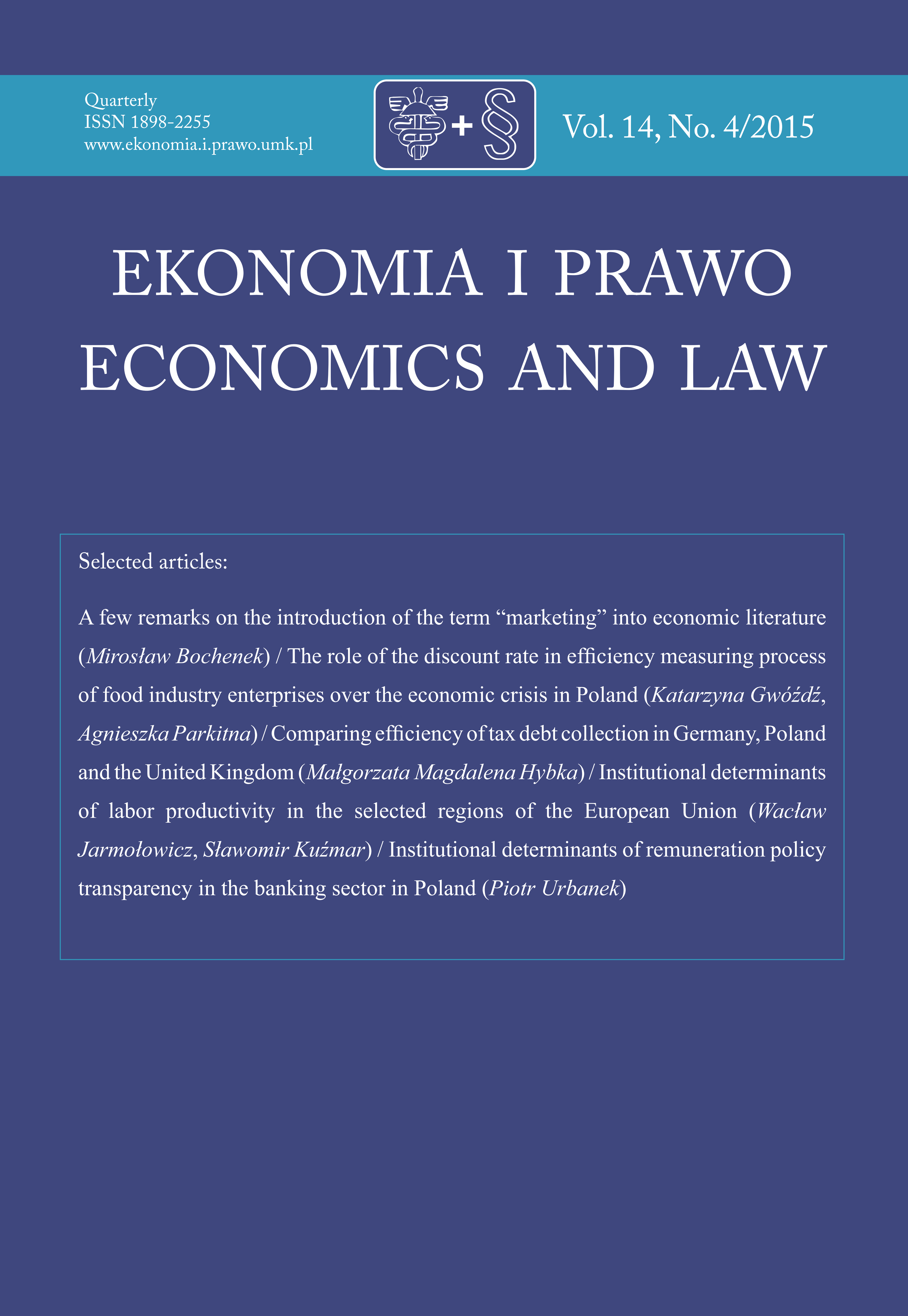THE SINGLE MARKET AND THE “BICYCLE THEORY” OF THE EUROPEAN UNION POLITICS. DOES IT STILL WORK?
DOI:
https://doi.org/10.12775/EiP.2015.033Keywords
single market, common market, European integration, European Union, bicycle theoryAbstract
Decades of liberalization have transformed the original structure of the EC common market, being a synonym of the validity of the Four Freedoms — free movement of persons, goods, services and capital — into an integral instrument for conducting EU economic policy, but not without many constraints, both formal and informal.
The process of globalization of the world economy means, in the opinion of EU institutions, that currently the European Union more than ever needs a single market that would support reforms to boost growth and increase its competitiveness. The Single Market Acts of 2011 and 2012 suggest measures to further its development. It is treated as a continuous process. However, for many Member States the evolution of the single market is a kind of a perpetual transaction — a tender, in which a concession to EU group interests is expected equivalent of particular benefit. Quite often all concessions are treated by public authorities as downright harmful to the national interest, especially in times of economic and financial crisis.
The aim of this paper is an attempt to answer the question why building consensus on further proceeding to the single market is seemingly more difficult to achieve than ever in the past? The problem looks even more serious, once we accept as a starting point the “bicycle theory”, which shows that the halting of the evolution of the single market may cause the opposite process — the disintegration of the EU market.
References
Barroso J.M., Political guidelines for the next Commission, http://ec.europa.eu/archives/commission_2010-2014/president/pdf/ press_20090903_en.pdf (14.08.2015).
Brussels European Council, Bulletin of the European Communities, No. 3/1985.
Cecchini P., Catinat M., Jacquemin A., The European Challenge 1992: The benefits of a Single Market, Aldershot: Wildwood House 1988.
Commission of the European Communities, Completing the Internal Market. White Paper from the Commission to the European Council (Milan, 28–29 June 1985), COM(85) 310 final, Brussels, 14 June 1985.
Council directive of 24 June 1988 for the implementation of Article 67 of the Treaty (88/361/EEC), OJ L 178
den Boer M., Step by Step Progress: An Update on the Free Movement of Persons and Internal Security, http://www.infoeuropa.eurocid.pt/files/database/000024001-000025000/000024994.pdf (09.08.2015).
Dublin European Council, Bulletin of the European Communities, No. 12/1984.
European Commission, Overview of responses to the public consultation on the Com-munication “Towards a Single Market Act”, Commission Staff Working Paper, SEC(2011) 467, Brussels 2011.
European Commission, Single Market Act II. Together for the new growth, Communi-cation from the Commission, COM(2012) 573 final, Brussels 2012.
European Commission, Single Market Act. Twelve levers to boost growth and strength-en confidence. Working together to create new growth, Communication from the Commission, COM(2011) 206 final, Brussels, 2011.
European Parliament, Report on delivering a single market to consumers and citizens (2010/2011(INI)), Session document, Committee on the Internal Market and Con-sumer Protection, Brussels 2010.
Fountainebleau European Council, Bulletin of the European Communities, No. 6/1984.
HM Government, Review of the Balance of Competences between the United Kingdom and the European Union. The Single Market, London 2013, https://gcn/civilservice.gov.uk/, https://www.gov.uk (15.08.2015).
Judgment of the Court of May 22, 1985, C-13/83.
Monti M., A new Strategy for the Single Market. At the Service of Europe’s Economy and Society, Report to the President of the European Commission, 9 May 2010, http://ec.europa.eu/internal_market/strategy/docs/monti_report_final_10_05_2010_en.pdf (11.08.2015).
Pataki Z., The Cost of Non-Europe in the Single Market. “Cecchini Revitised”, An overview of the potential economic gains from further completion of the European Single Market, CoNE 1/2014, European Parliamentary Research Service, European Added Value Unit, PE 510.981, Brussels 2014.
The European Council, Conclusions. Session of the European Council, Copenhagen, 3 and 4 December 1982, Dossier of the Group of the European People’s Party, Lux-embourg 1990.
Zoellick R.B., The WTO and New Global Trade Negotiations: What’s at Stake, Council on Foreign Relations, Washington 2001.
Downloads
Published
How to Cite
Issue
Section
Stats
Number of views and downloads: 780
Number of citations: 0
